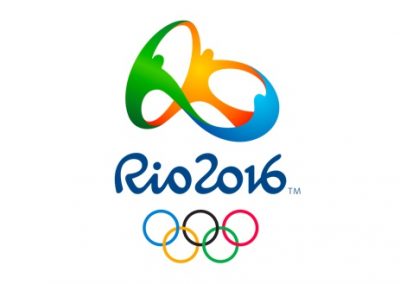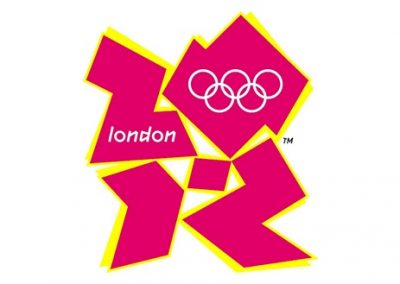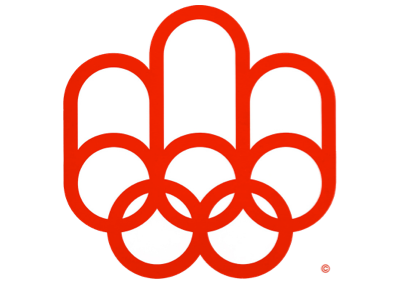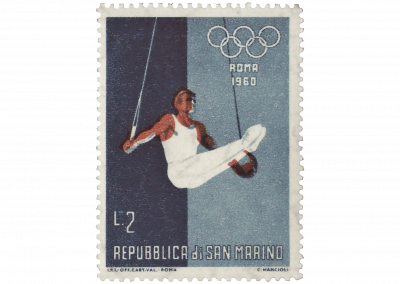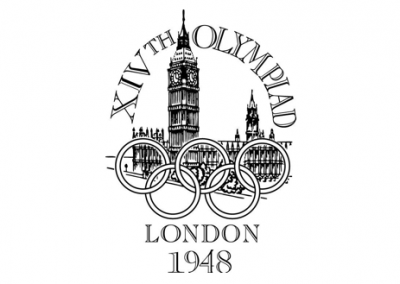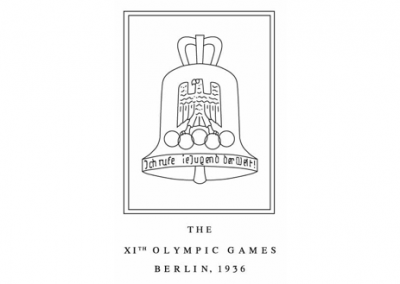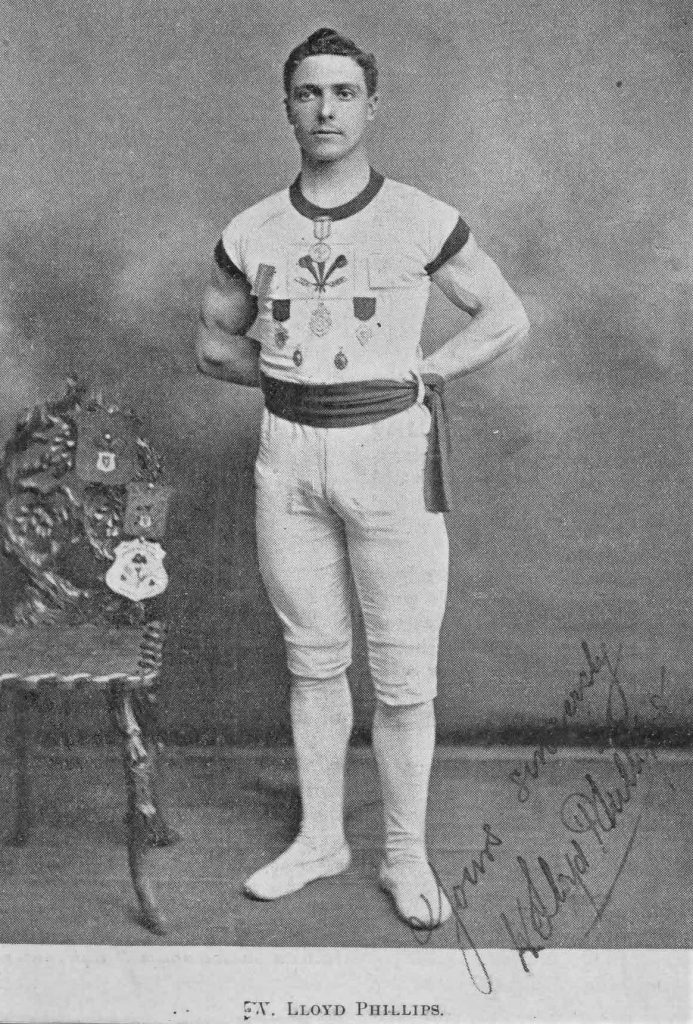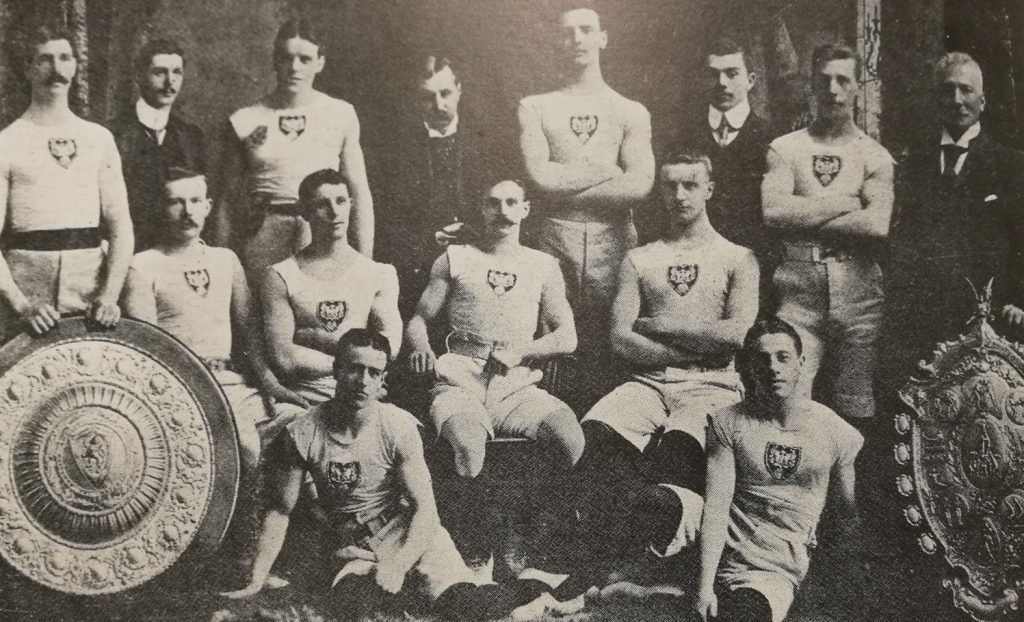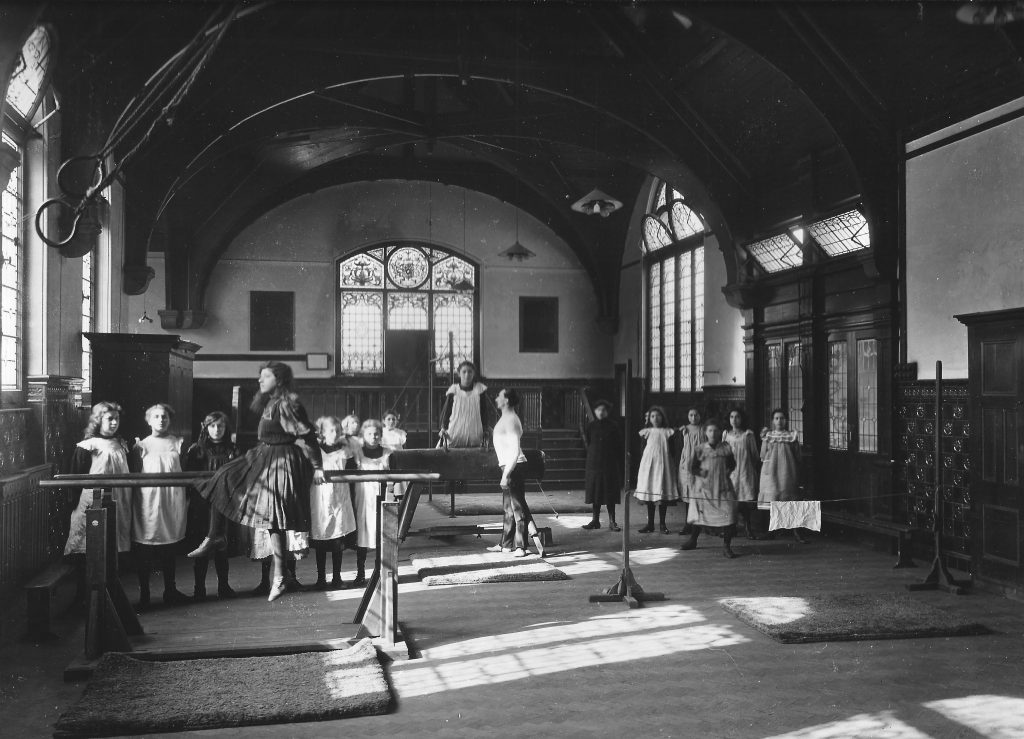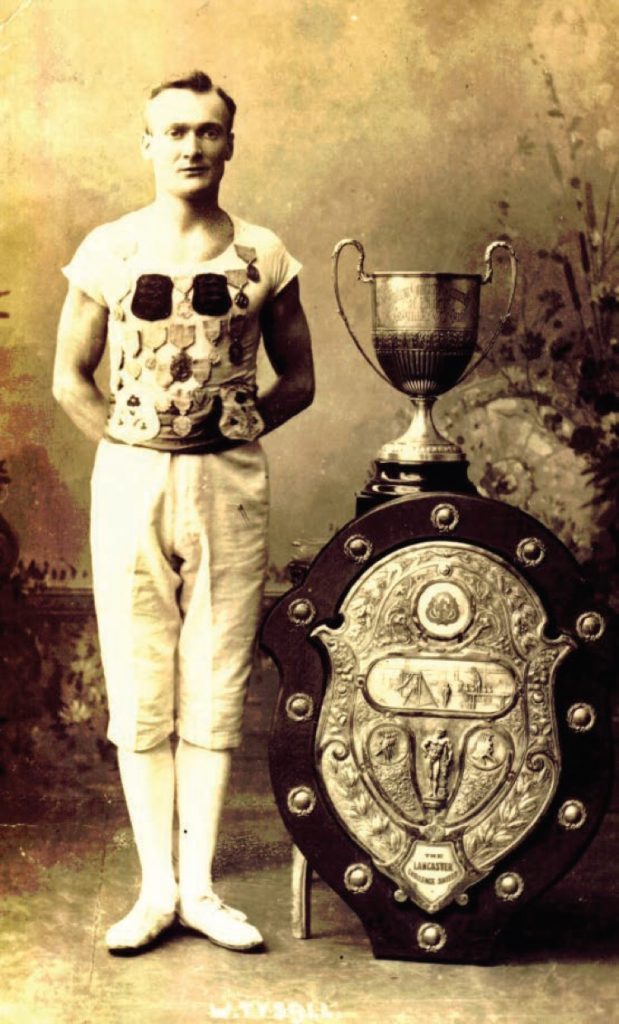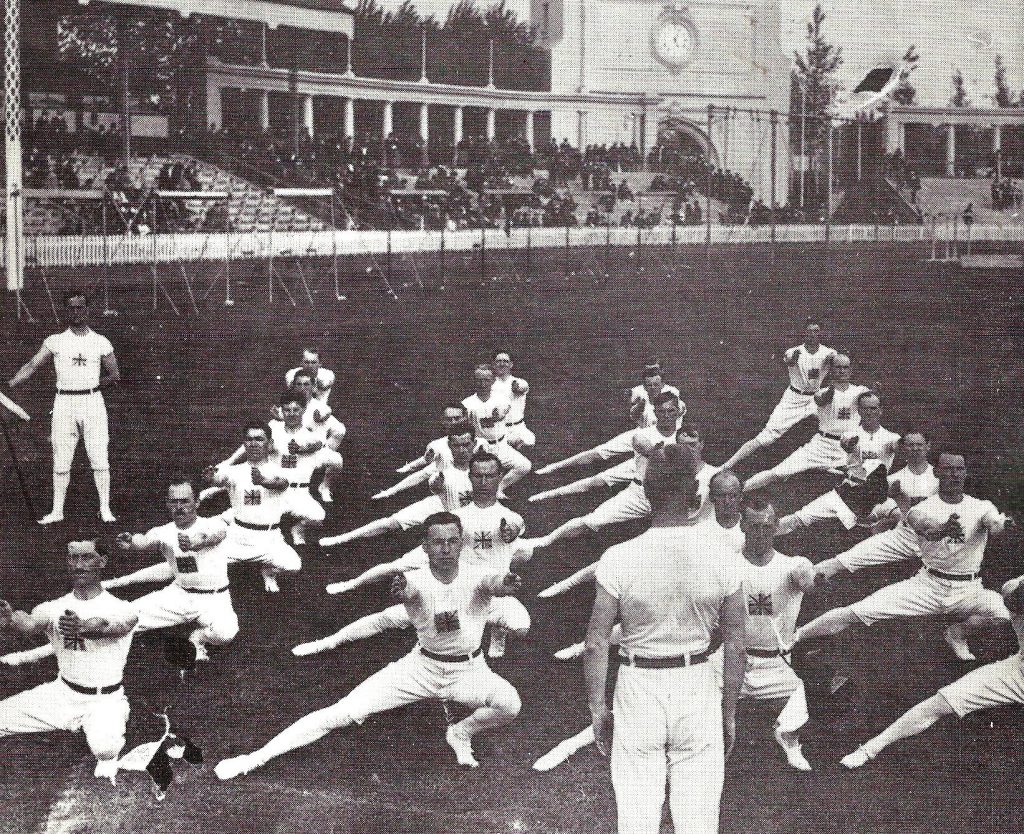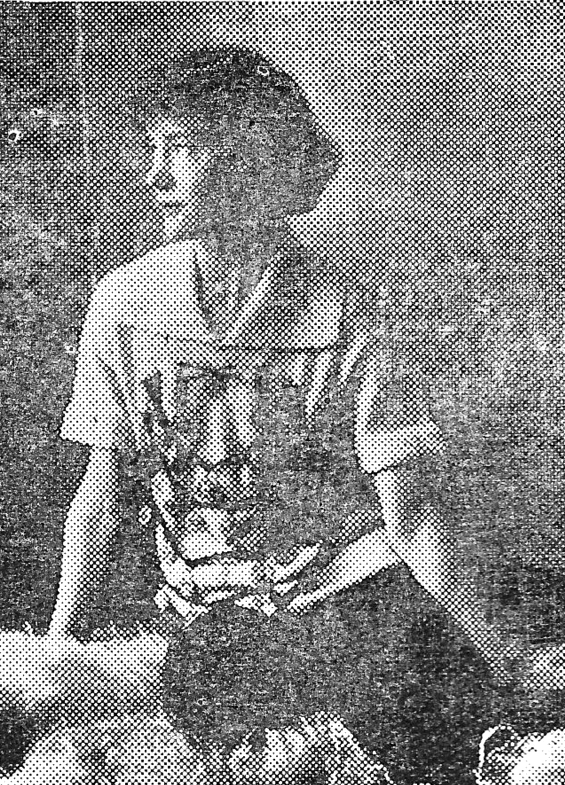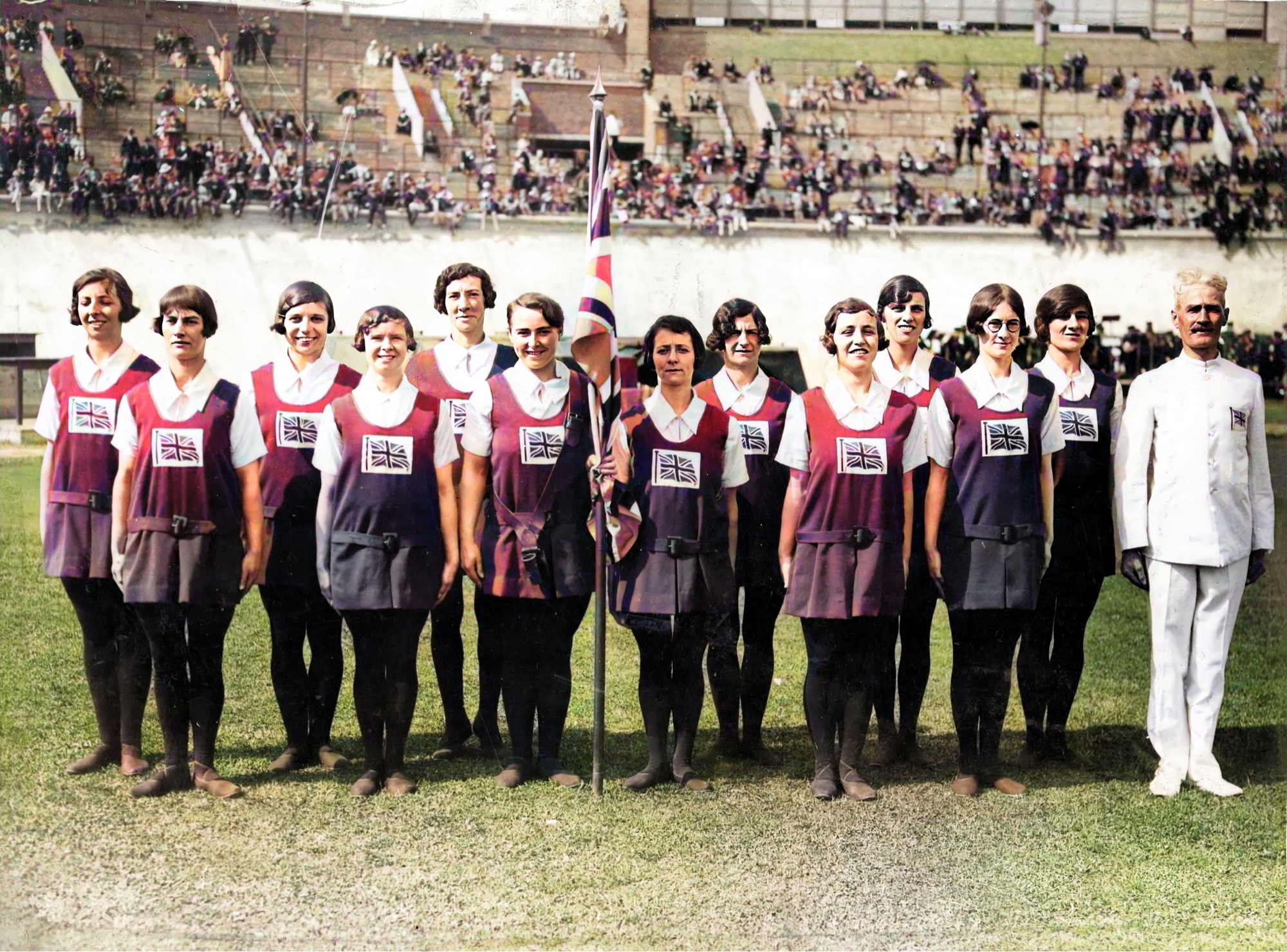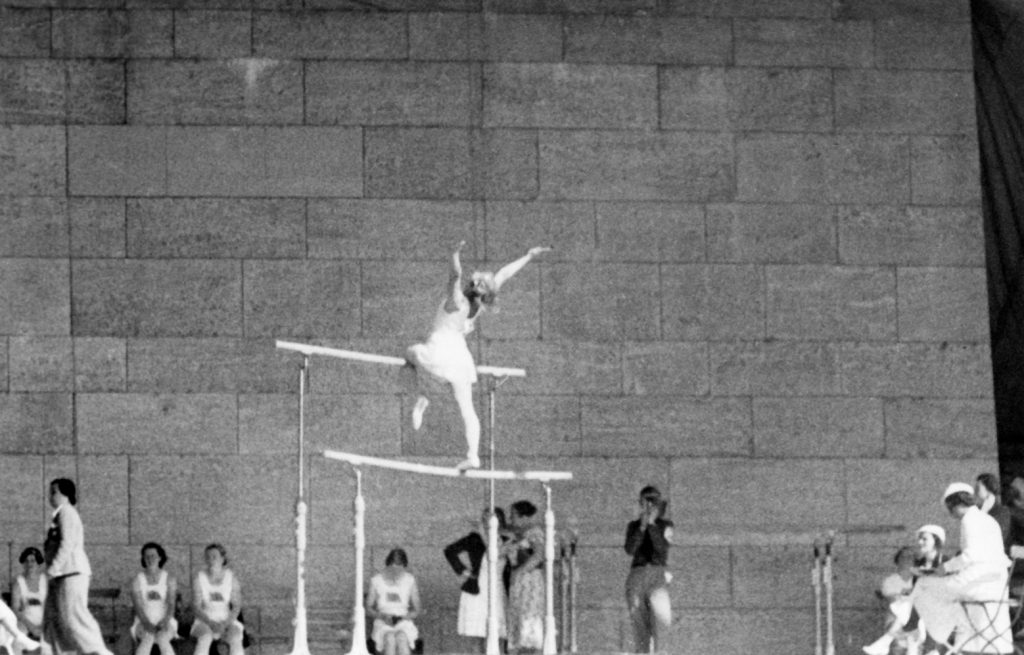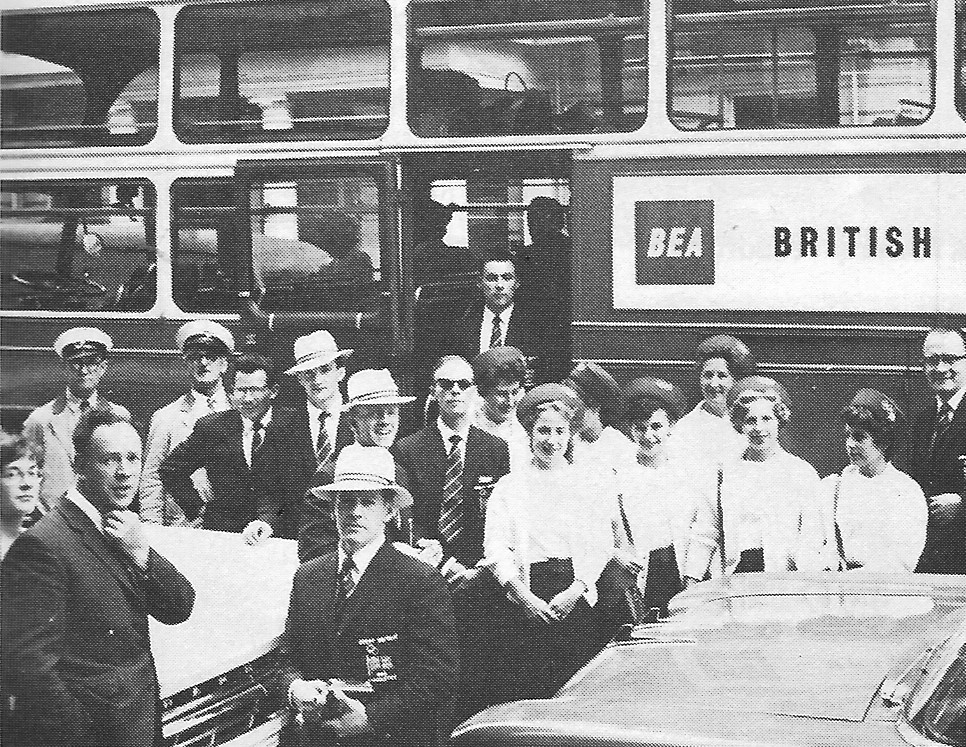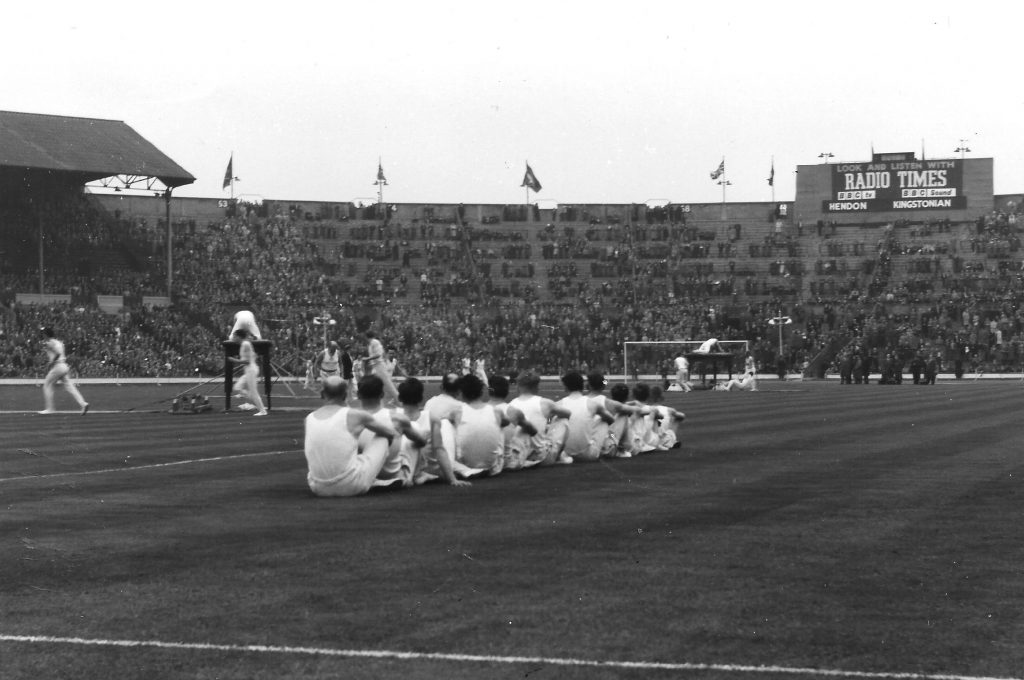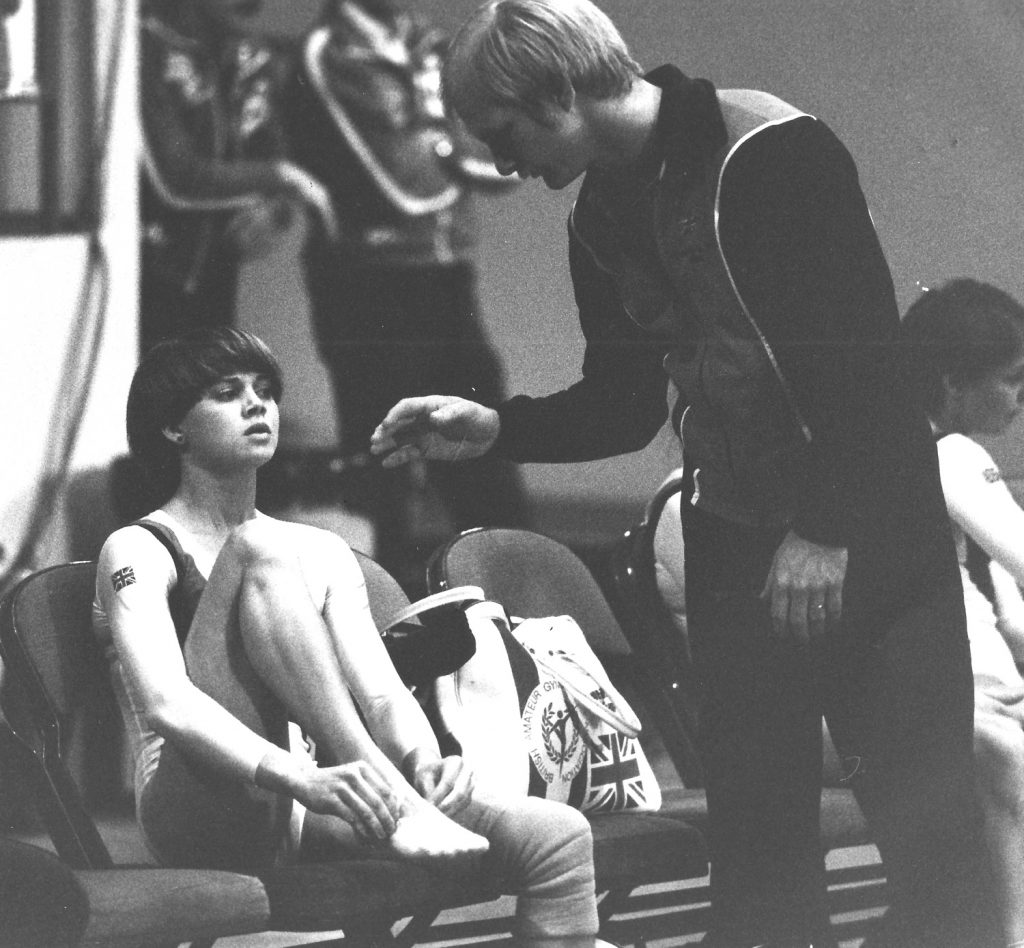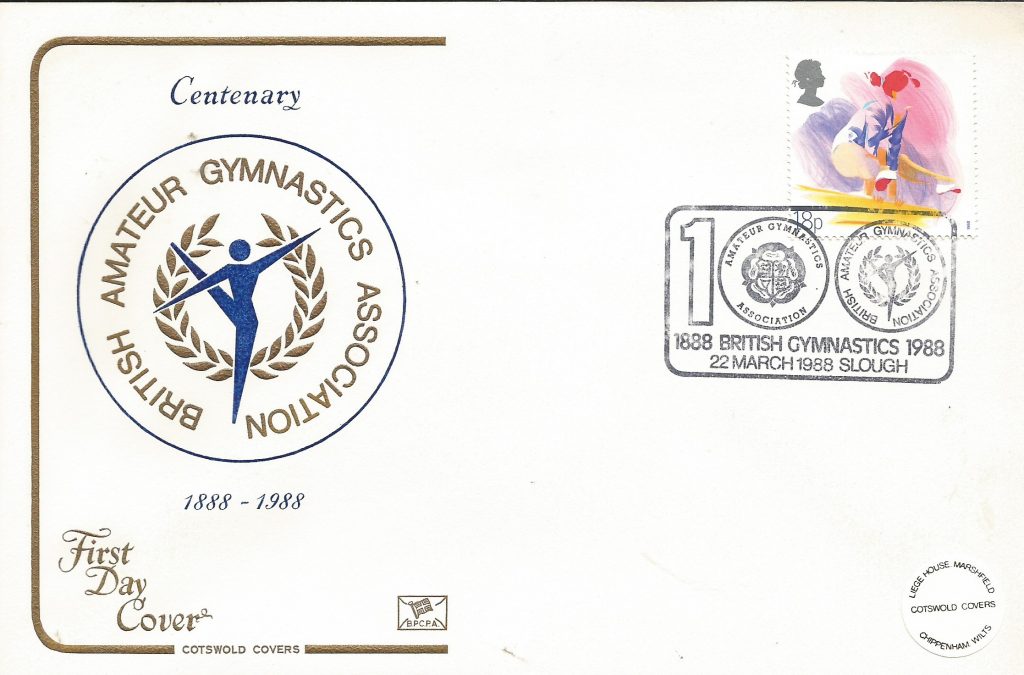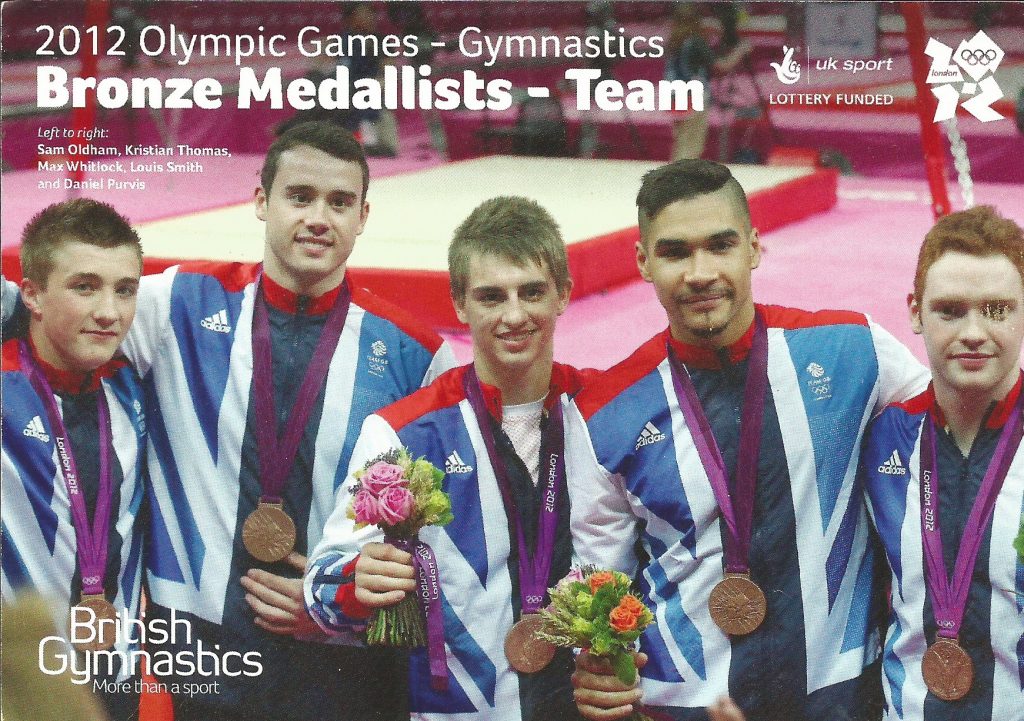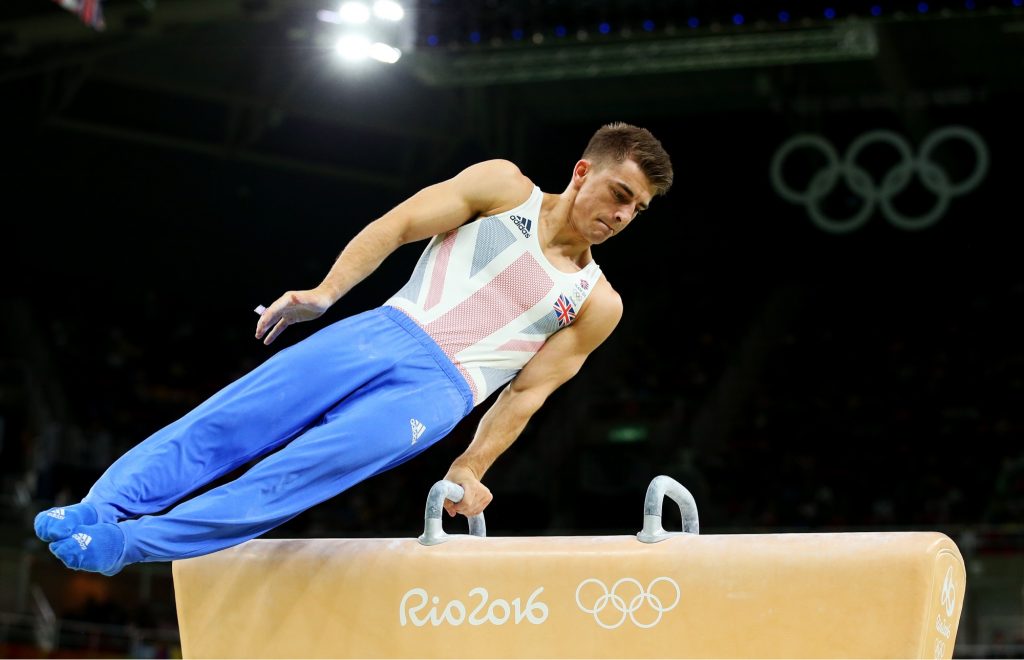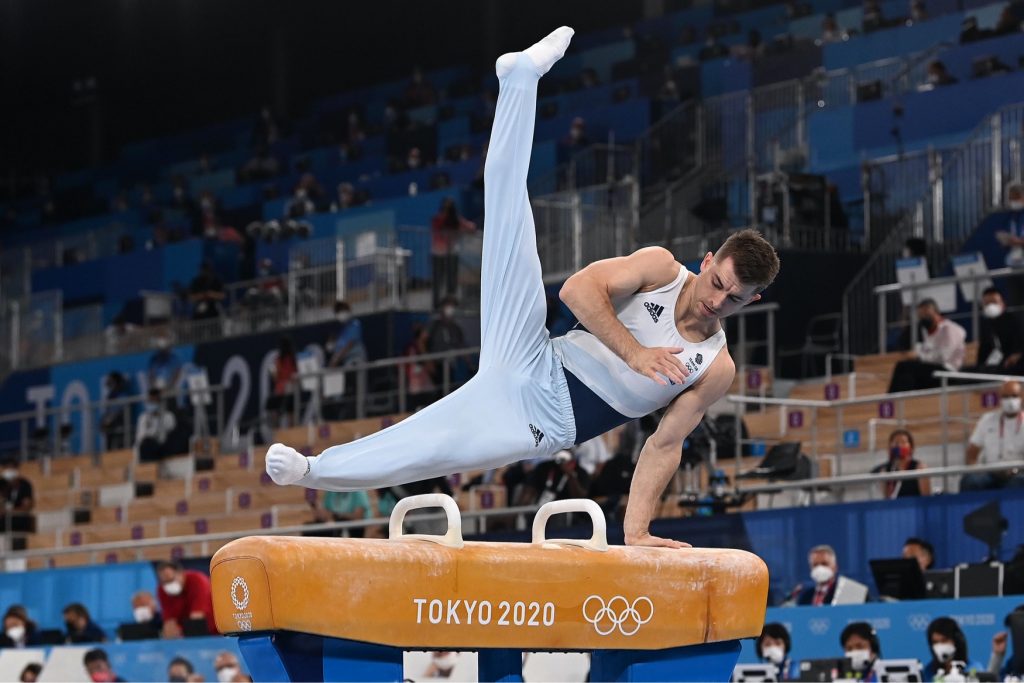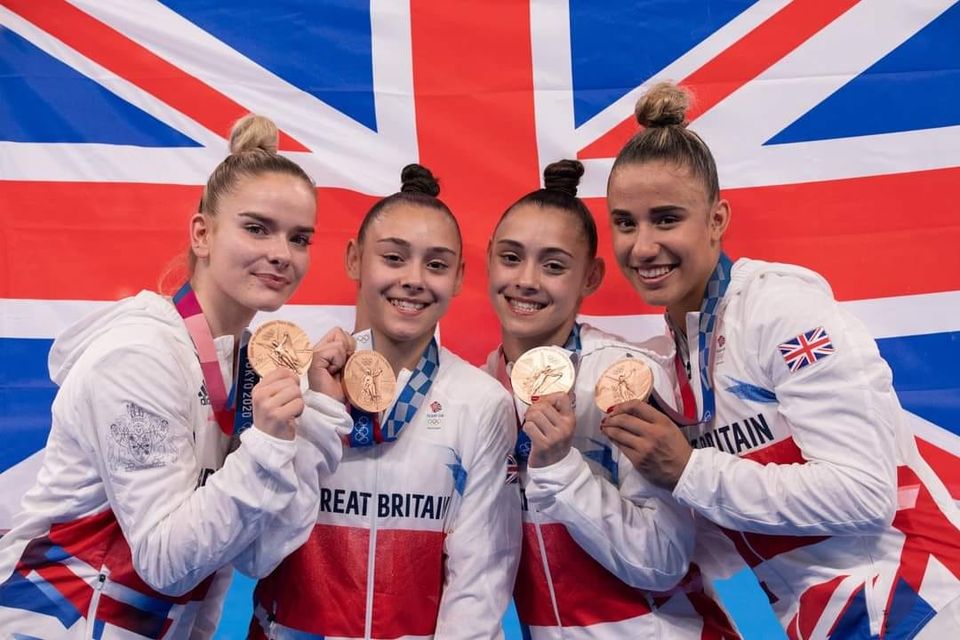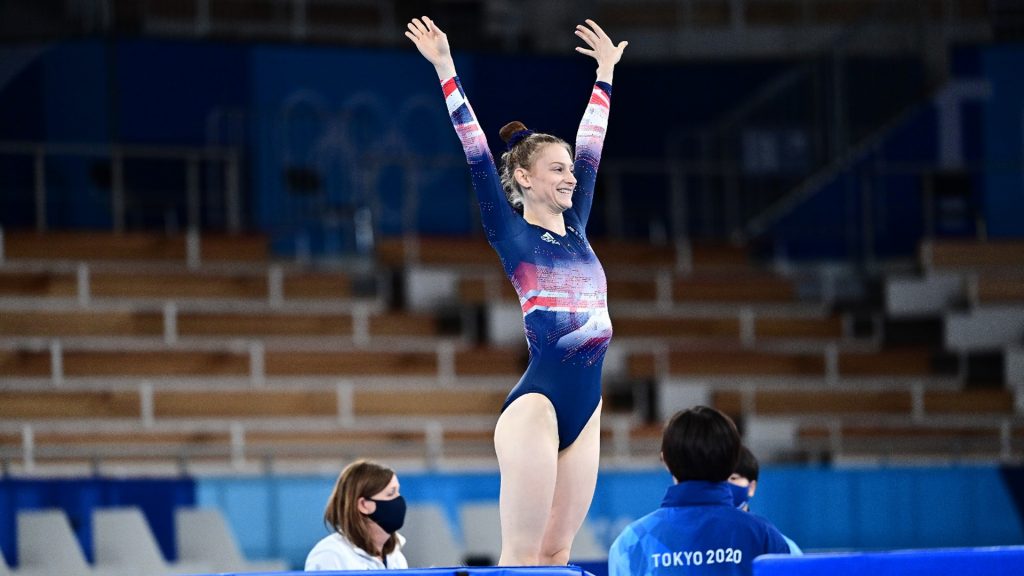OLYMPIC REPORTS
COMING SOON
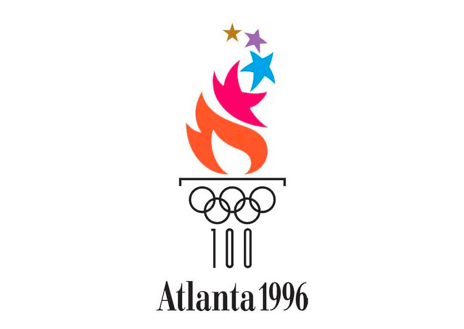
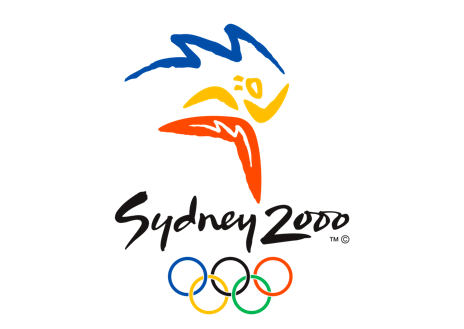
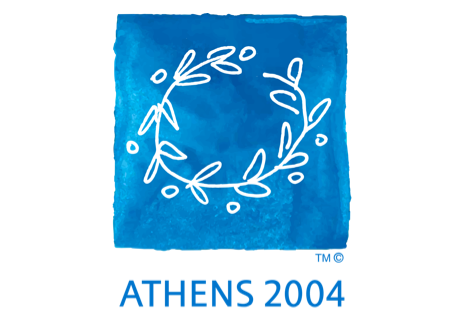
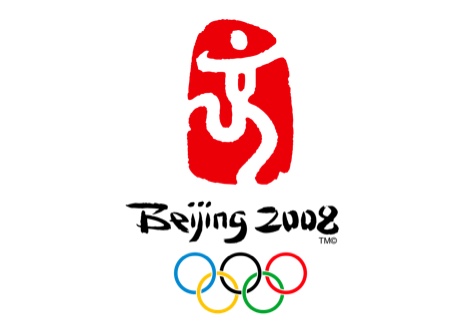
Key GB moments at the Olympic Games
1900
The second Olympic Games are held in Paris. Lloyd Phillips from Newport, South Wales, takes part along with four other gymnasts, William Pearce from London, William Connor, Broadbec, and Hiatt. Lloyd is recognised as the first Welsh athlete to compete in an Olympic Games.
Above – Welsh Olympic Gymnast Lloyd Philips
The Adams’ Shield National team competition takes place for the first time. This is the men’s club championship and is open to all UK clubs. Clubs from Scotland, Ireland, and England competed with Dundee being the winner. The event is held at the new premises of the Dolobran Athletic club whose membership, having grown to 700 members, required a new facility. This is made possible with the help of the Cadbury family. The Friends Institute on Moseley Road in Birmingham is still standing.
Above – Early winners of the Adams Shield – this is either Leith Gymnasium or Carnegie Dumferline probably with Councillor Adams by his shield. The Scottish Shield first competed for in 1891 is seen left.
Gymnastics now takes place in schools and even orphanages.
1908
1908 LONDON OLYMPIC GAMES
Walter Tysall (Birmingham Athletic Institute) – SILVER. The first Olympic medal for GB. 45 gymnasts listed in the team that came 6th
The International Gymnastics Board is set up to assist the organisation of the London Games. It went on to be known as the Amateur Gymnastics Federation of Great Britain and Ireland. Lawrence Levy acted as the Honorary Secretary and Treasurer, a post he held until 1911 when it seems that the AGF of Great Britain and Ireland disappeared.
The AGF and the British Olympic Association agreed a programme for the individual competition for the London Olympics. The programme was known as the Heptathlon, there were 7 disciplines for the games. Rules and timings were agreed upon for the team competition and displays. The displays are non competitive and are open to women. The organisation was not without problems. Levy records that Lord Desborough President of the British Olympic Association was heard to mutter between his teeth, “This show will be the greatest fiasco the world has ever seen” However it seems that order came out of chaos although Levy compared the 1896 Athens Stadium classical look, with that of Shepherds Bush Arena resembling a glorified football stadium.
The Carnegie Gymnastics Club, Dunfermline became the proud winners of the Adams Shield and the Scottish Shield.
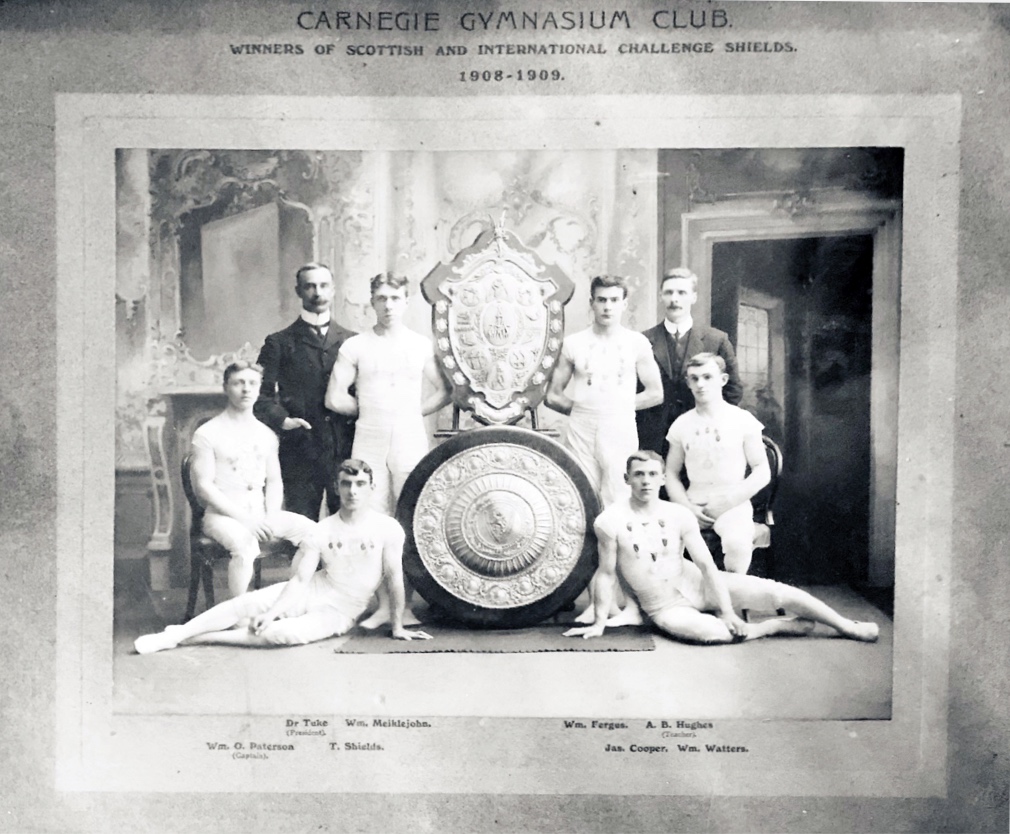
Carnegie Gymnasium Club – 1908 winners of the Adams Shield and the Scottish Shield
It is recorded at this time by the European Gymnastics Federation (the forerunner to the FIG) that Great Britain was made up of 4 federations, had 200 societies and 60,000 members.
1912
Stockholm Olympics
6th – 15th July
Individual competition included High Bar, Parallel Bars, Pommel Horse and Rings.
Team GB 23 men Albert Betts, Harry Dickenson, Samuel Hodgetts, Alfred Messenger, Edward Pepper, Charles Vigurs, Samuel Walker, John Whitaker, Sidney Cross, Bernard Wallis Franklin, Edward Potts, Reginald Potts, George Ross, Henry Oberholzer, Charles Simmons, Arthur Southern, Ronald McLean, Charles Luck, Herbert Drury, William McKune, William Titt, William Cowhig, Leonard Hanson.
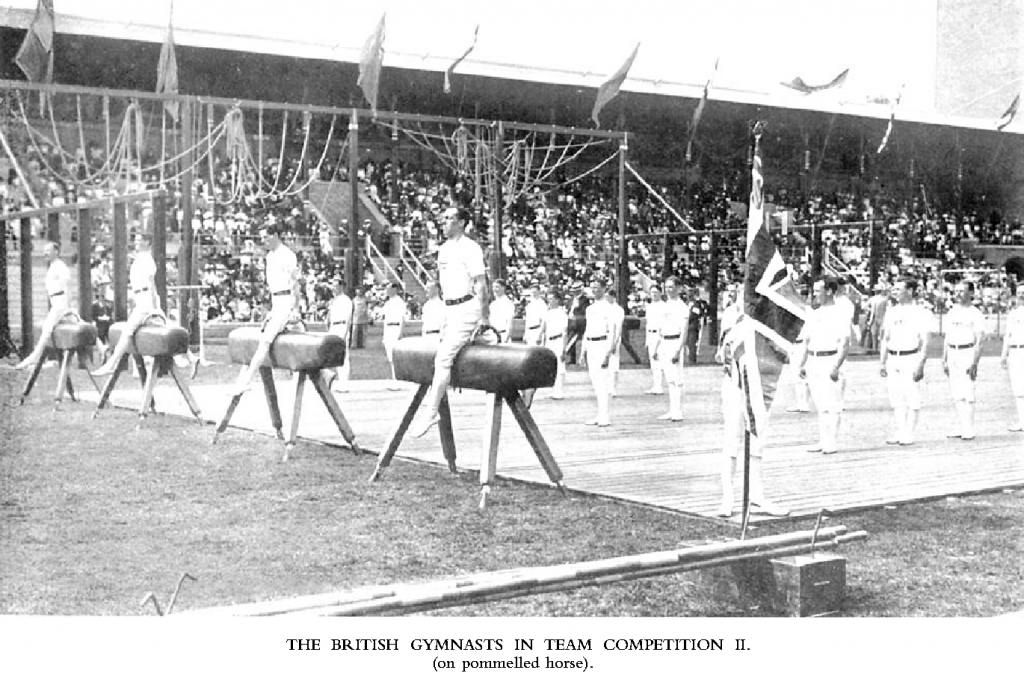 Above – Men’s Team – BRONZE; the first British team to win a medal at the Olympics.
Above – Men’s Team – BRONZE; the first British team to win a medal at the Olympics.
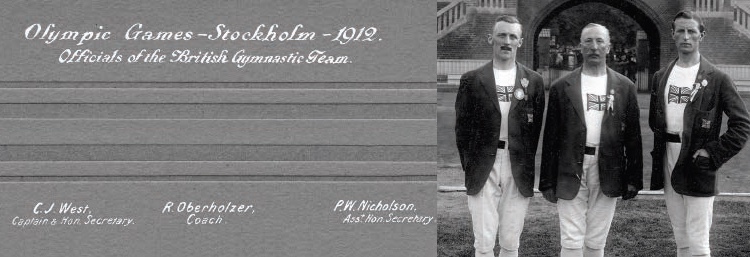
Above – The team officials were Charles West, Honorary Secretary, Rudolf Oberholzer coach and P W Nicholson assistant honorary secretary.
In this year, several gymnasts were suspended for breaching amateur rules; a section had to be signed by each competitor to declare their amateur status.
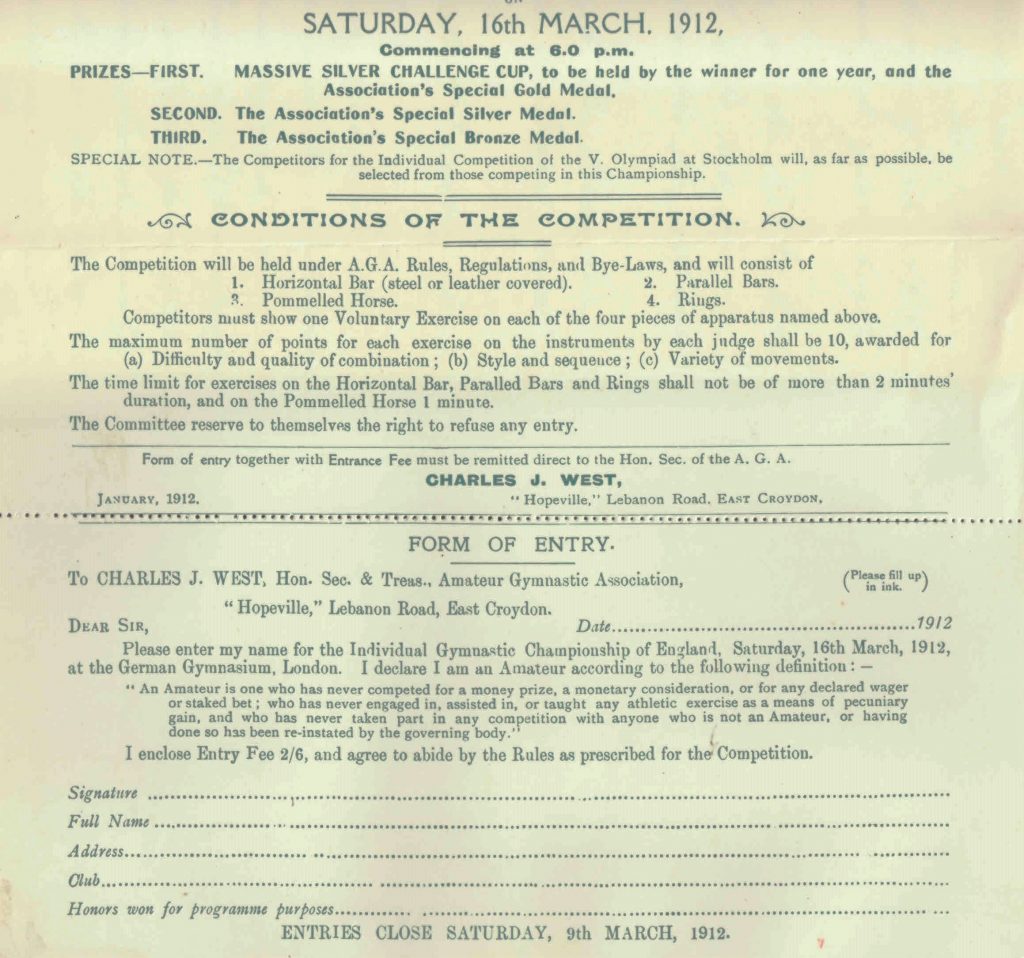
1912 Conditions and the Entry Form for the English Championships
1924
1924 Olympics Paris – British Men’s Team competed. The British Men’s Team came 6th out of 8 teams. The individual British gymnasts are way down in the results table.
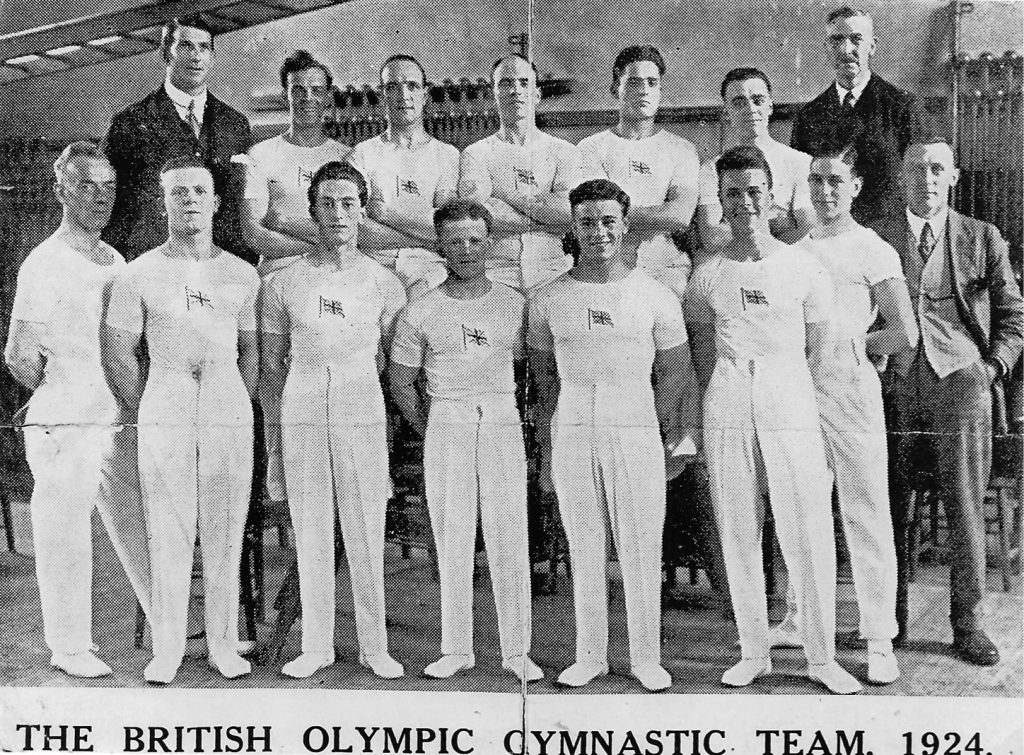
1924 Men’s team left JJ Cook coach extreme right Charles West Leigh brothers Ernest & Stanley centre front.
First British Championships held for Women in Swindon.
A suggestion is made that lady judges officiate at the forthcoming English Women’s Individual Championships. Executive representatives from the Birmingham & District AGA and the Yorkshire AGA disapprove, so three male judges are appointed for the task.
A trophy is donated by the Honorary Secretary’s wife. The Mrs. Charles West trophy is still awarded each year to the women’s British champion. Dorothy Billson of Bradford wins. The women compete in set and voluntary exercises on parallel bars, swinging rings, vault with pommels, plus Indian club swinging. Ten marks are awarded for parallel bars, rings, and clubs, and 3 for vault. The parallel bars and ring exercise to be no more than 1 minute and Indian clubs are between 2 – 2 ½ minutes, music is optional.
1928
The Olympics are held in Amsterdam
Women compete in gymnastics for the first time. GB Ladies Team (12 gymnasts) – BRONZE (team event only for women). They subsequently receive bad press for ‘baring too much of their legs’, albeit wearing tights
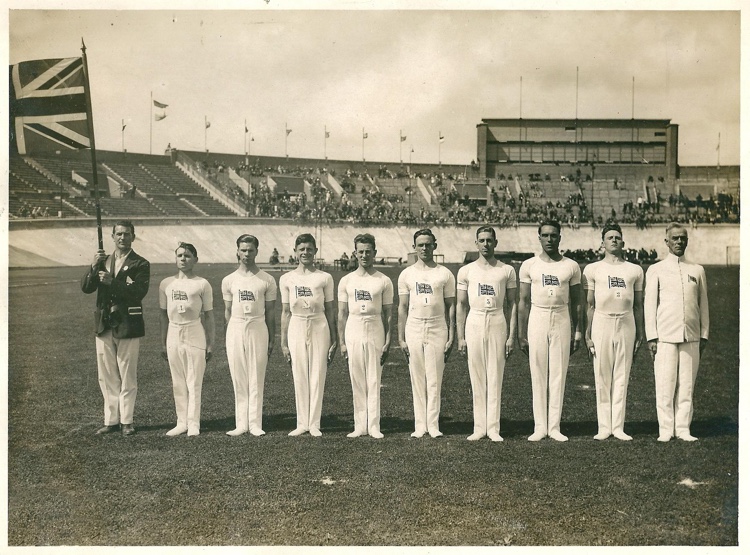
Above – 1928 GB Olympic Men’s Gymnastics Team, comprising gymnasts – E. Warren, H.J. Finchett, Gilbert Charles Raynes, W. Cronin, E. Walton, T.B. Parkinson, A.J. Whitford and S. Humphreys.
It’s decided that all men competing in the Individual Championships must use the steel bar provided. There will be no wooden bar from now on. The 1912 entry on this was just a recommendation.
Arthur Whitford of Swansea YMCA & Sketty wins his first national title, to be the first of 10.
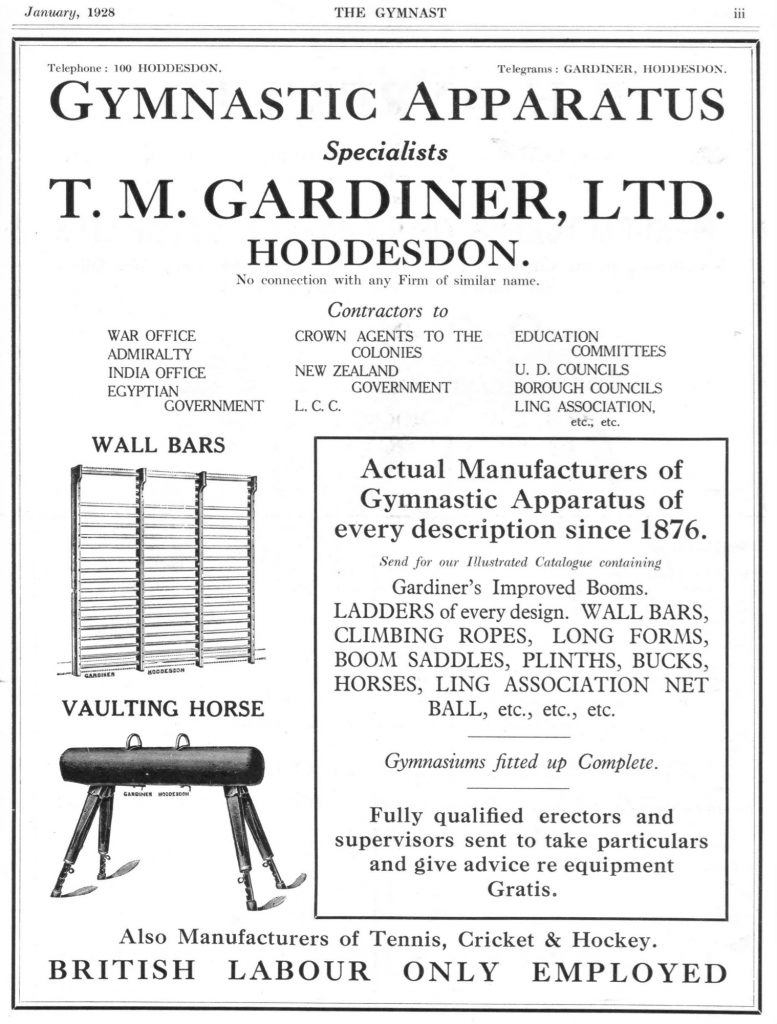
Above – Gymnast magazine of the time shows a great variety of adverts for gymnastics apparatus. T M Gardiner has been making apparatus since 1876.
1932
In January, it was confirmed that there would be no competition for women at the Los Angeles Olympics. There will be exhibition work for women of 16 plus members. It would not be possible for the UK to take part in this due to the cost. It was decided that the men would not compete also due to the cost.
At the AGM, the executive members are usually voted in en bloc. Mr Billson, husband to Dorothy Billson, the first lady champion, nominated MIss JM Shaw for the executive. Voting took place, but there was no change in the usual members: men only.
1936
Team GB compete at the 1936 Berlin Olympics. Read full report on the 1936 Olympics. Last Olympics before outbreak of World War II.
The photo shows Edna Earl competing on the Uneven Bars.
The Gymnast magazine ceases.
1948
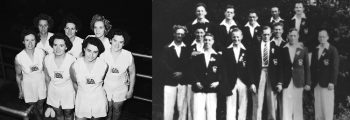
1948 Olympic Games in London – 2 teams represent GB. Much of their training is done in poor conditions including in Hyde Park. German POW Helmut Bantz helps the men’s team with their training. Read the full Olympic report here.
1960
Two full teams are selected for the Olympics in Rome. At the last minute, funding is withdrawn for the two coaches, Frank Turner and Edna Gross. They pay their own way.
First schoolboys course held at Swaylands Kent.
London, Manchester & Liverpool YMCAs and The London Gym Club ( a total of 65 male gymnasts) perform before the FA Cup at Wembley, performing on High bar, two vaulting tables and floor work with hand balancing. Date 23rd April.
Above – Gymnastics display the FA Cup at Wembley
1984
Los Angeles Olympics – 2 teams of 6 take part. 2 Rhythmic gymnasts take part.
GB Men & Women gymnasts participate in the Alternative Olympics Czechoslovakia. (The Eastern Block Olympics as they boycotted Los Angeles).
British Gymnastics aims to give all disabled people regardless of impairment or ability the chance to participate in every form of the sport. Disability Gymnastics recognised as an official discipline.
John Atkinson appointed Technical Director.
Colin Still becomes full time National Coach for women, a post he had held in an honorary position since 1981.
Lloyd Readhead appointed as National Coach for men.
1992
Barcelona Olympic Games – a team of 6 men and 2 women represent GB.
Some male gymnasts are centralized with their training at Lilleshall.
Adrian Stan from Romania is appointed National Coach for women’s artistic gymnastics.
Aerobic Gymnastics introduced in Great Britain.
2000
Sydney Olympic Games – a team of 6 women and 1 man represent GB.
Alan Somerville becomes CEO for British Gymnastics following a variety of General Secretaries. BG finances are in a poor state. Alan Somerville changes this around.
British Gymnastics membership now up to 100,000.
2004
Athens Olympic Games – a team of 6 women represent GB.
2005
Britain announced as host for 2012 Olympic Games. British Gymnastics launches new strategy to host a European or World Championships each 4 year Olympic cycle.
2008
Beijing Olympics – a team of 6 women and 2 men represent GB. 100 years after Walter Tyslall wins a silver medal, Louis Smith wins Britain’s next Olympic medal, winning bronze on pommel horse.
The Junior men’s team wins gold at the European Championships beating Russia.
2012
The Senior British men’s team wins gold at the European Championships.
The Olympic Games is held in London with gymnastics at the North Greenwich Arena. GB men win bronze medal in the team event. This is followed by 3 individual medals, silver and bronze for Louis Smith & Max Whitlock on pommels and Beth Tweddle wining bronze on bars. Behind the scenes, British Gymnastics’ events team run the gymnastics competitions in the North Greenwich Arena (AKA the 02 Arena) and Wembley stadium for the Rhythmic Gymnastics.
British Gymnasts are now more popular than any other time in our history. TV audiences are higher than ever and our top gymnasts achieve recognition off the competition floor
Gymnastics as a sport is more popular and membership numbers exceed 300,000 for the first time
2016
Rio Olympic Games – GBR wins 2 gold medals, Max Whitlock wins floor exercise and pommel horse. Louis Smith wins silver on pommels, Amy Tinkler wins bronze on floor and Nile Wilson wins bronze on high bar. Max wins bronze medal in the all-around. Bryrony Page wins the silver medal on trampoline.
Photo BG
British Gymnastics wins Governing Body of the Year award.
2021
The 2020 Tokyo Olympic Games are delayed and take place in 2021 because of the COVID-19 pandemic.
The women’s artistic team won the bronze for the first time since 1928.
Max Whitlock wins gold again on the Pommels making him a 3-time medal winner at three consecutive Olympics on the Pommel Horse.
Bryony Page wins the bronze medal in the women’s trampoline event at the Tokyo Olympics, making her a 2-time Olympic medallist. She also becomes the 2021 World Champion making her the first world champion in this discipline and our most successful trampoline gymnast.
Photos of Bryony Page and Max Whitlock – BG
Est. 2018 | © GymnasticsHistory.co.uk 2025

